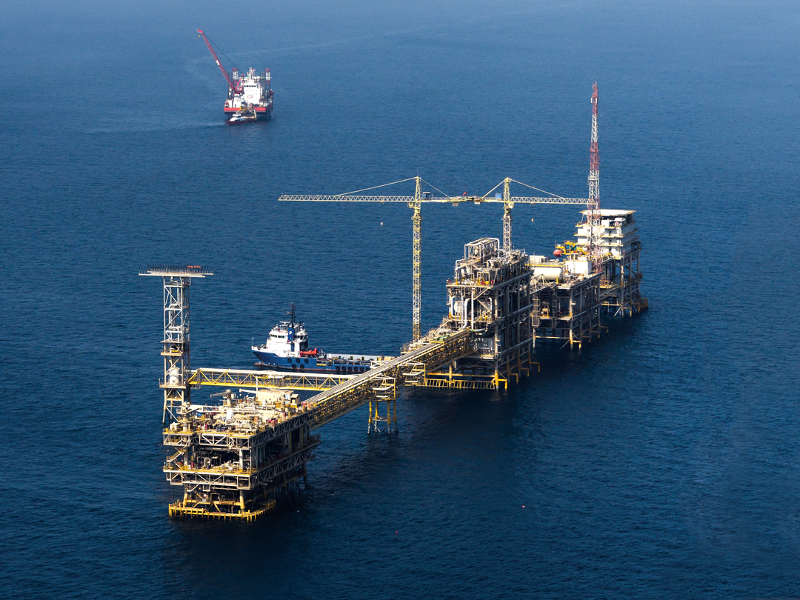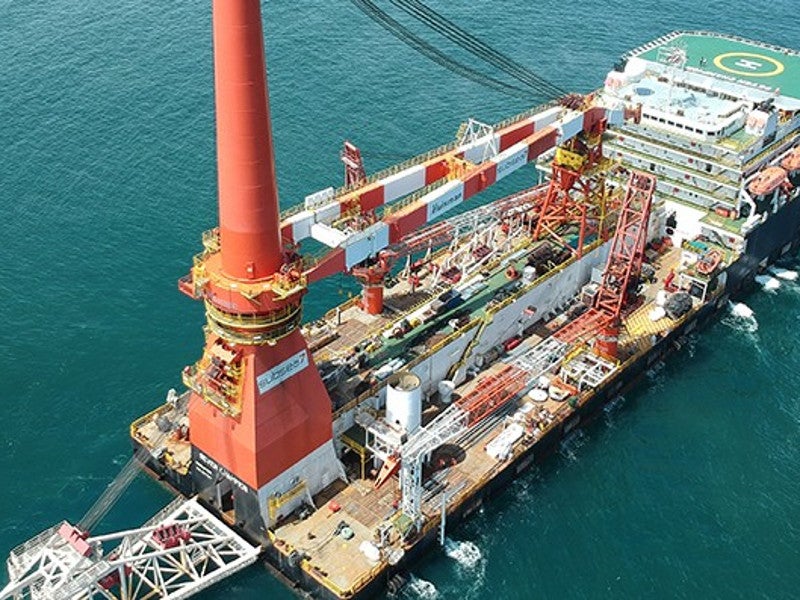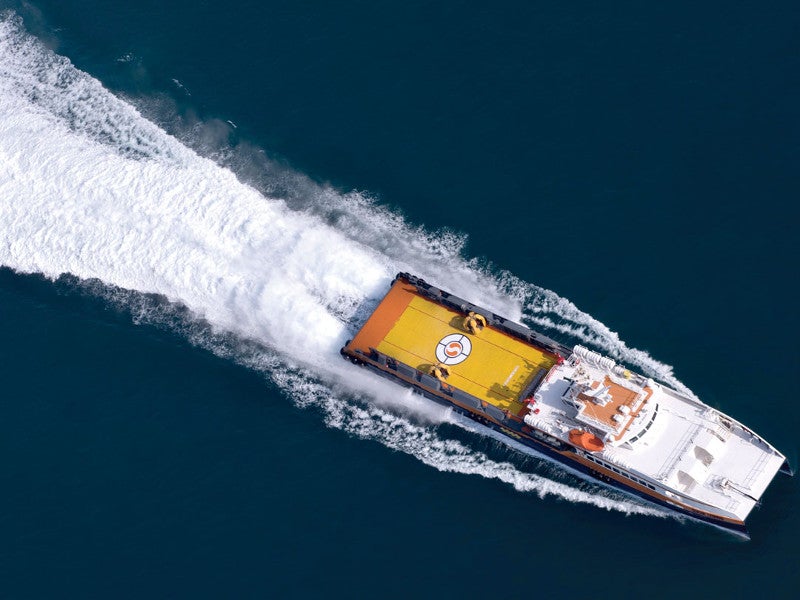Zuluf is a giant offshore oil field located in the Arabian Gulf, approximately 240km north of Dhahran, Saudi Arabia.
Owned and operated by the Saudi state-owned oil behemoth Saudi Aramco, the Zuluf field is undergoing a major expansion to add 600,000 barrels per day (bpd) of Arabian Heavy crude production by 2020.
Discovered in 1965, the shallow water oil field is located in 36m-deep waters and has been producing since 1973. The current maximum production capacity of the field is 800,000bpd of Arab Medium crude oil.
With two main sandstone reservoir structures, namely Zuluf and Ribyan, the offshore oil field is estimated to contain more than 31 billion barrels of oil-equivalent (boe) in proven reserves.
Zuluf oil field expansion details
The aging offshore infrastructure at the Zuluf oil field is being replaced with modern electrified platforms to extend the operational life of the field. A single well observation platform and three oil production deck manifolds along with associated subsea pipelines are being installed as part of the expansion.
New onshore central processing facilities to be built as part of the Arab Heavy (AH) Crude Oil Increment 600 MBCD initiative of the Zuluf field development program will include a new gas and oil separation plant (GOSP), gas compression facilities, a new water injection plant, and associated pipelines.
The onshore central processing facility will process 600,000 barrels of Arabian Heavy crude from the Zuluf field.
The stabilized crude oil from the processing facility will be sent to the Ju’aymah crude oil terminal, while the separated gas and condensate will be sent to the Tanajib gas plant through new downstream pipelines.
Infrastructure at the Zuluf oil field
The Zuluf oil field is developed with more than 270 producing wells and four offshore GOSPs capable of processing a total of 800,000 barrels of Arab Medium crude oil a day.
Originally built in 1983, the GOSP-3 was closed in 1995 due to low demand for Arabian Medium crude oil.
Saudi Aramco, however, decided to restart the plant in 2016, as a result of which the GOSP-3 was repaired and brought on stream in 2017. The plant has the capacity to process 250,000 barrels of oil and 100 million metric standard cubic feet (Mmscf) of gas a day.
A five-story residential platform with a total area of 3,750m² was also renovated as part of the GOSP-3 renovation project.
Contractors involved
Subsea 7 in consortium with L&T Hydrocarbon Engineering, a subsidiary of Larsen & Toubro, was awarded the engineering, procurement, construction, and installation (EPCI) contract for three oil production deck manifolds and subsea pipelines for the Zuluf field, under a long-term agreement (LTA) with Saudi Aramco, in April 2019.
Jacobs Engineering was awarded the engineering and project management services contract for the new onshore central processing facilities for the Arab Heavy (AH) Crude Oil Increment 600 MBCD project, in March 2018.
McDermott International was awarded the EPCI contract for the new platform jackets for the Zuluf oil field in January 2018. It had also received an award to build a single observation platform for the offshore field in January 2017.
Saipem was awarded the EPCI contract for the subsea systems along with the laying of pipelines, subsea cables, and umbilicals, as well as for the platform decks for the Zuluf oil field in November 2016. The scope of the contract also included maintenance and dismantling works on the existing platforms.





